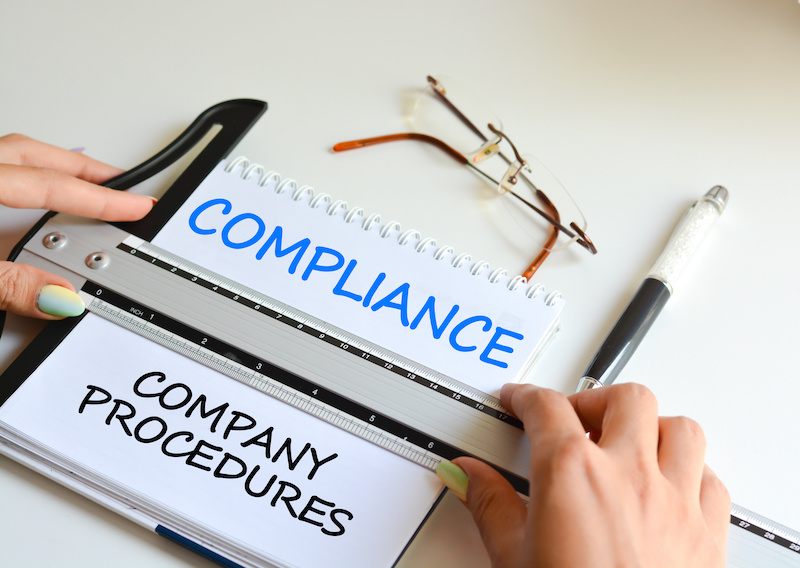
The Importance of Compliance Testing in Technology
For most businesses, the last measure to undertake before rolling out new technology to the market is product compliance.
The process of performing compliance testing can, at times, be lengthy and complex. This fact is true, particularly for devices featuring the latest technology.
Because of this scenario, compliance testing has emerged as a crucial step for most organizations across all sectors.
Note that whether your company belongs to the electrical, retail, or medical equipment industry, authorities require you to conduct compliance testing to guarantee your product is risk-free and follows legal provisions.
To know more about the topic, continue reading this article to gain a complete understanding of the importance of compliance testing.
What Exactly Is Compliance Testing?
Conformance or compliance testing is the process of auditing an organization’s adherence to a law, policy, or state provision. In a way, it’s the method companies use to test controls associated with regulatory risks or evaluate the control environment.
There are two types of compliance: corporate and regulatory. When it comes to regulatory compliance, organizations must comply with federal or international regulations. Know that industrial sectors and governments are the ones that created and implement these policies.
Meanwhile, corporate compliance refers to companies ensuring they’re legally operating, while, at the same time, observing their internal rules and guidelines.
Essential to realizing is that businesses must be mindful of what’s required from them. Likewise, they must be responsible for what transpires in the workplace to achieve those requirements.
Remember that safeguarding the company is compliance testing’s first goal. The method protects the organization from legal disputes, fraud, financial issues, etc. Often, the company has an in-house staff to perform the testing or hires an independent company to provide them with this service.
If you wish to browse accredited companies that can assist you in this matter, you may explore pertinent websites, such as Compliance Testing. On the one hand, if you’re still uncertain about the significance of this strategy, below, you’ll find factors that illustrate the importance of compliance testing in technology.
Ensure A Safe Work Condition
Most companies are familiar with Occupational Safety and Health Administration (OSHA), the governing body that ensures workplaces are safe from hazards. However, beyond adhering to OSHA regulations, organizations must see to it their company policies secure the safety of workers, as well as of the community and the environment.
They must strive to maintain a quality and safe work system that lessens the chances of injury or harm to employees, customers, or the public in general. And. in executing regular compliance testing, you can guarantee that your organization is sustaining a safe work condition for everyone.
Product Security
Typically, businesses avoid product liability cases. The term product liability refers to a circumstance wherein a product caused harm to an individual. If a complainant can prove that the product has a defect or the company was unable to inform users of its possible risks, then the petitioner may have a case.
As a result, companies may suffer legal fines, loss of income, and brand credibility damage. However, when firms conduct conformance testing, they can avoid liability cases since it ensures the product is up to standard before it penetrates the market.
Likewise, the government requires some manufacturers to submit an FCC certification before selling their products to consumers. With all these elements, companies can avoid experiencing these troubling issues.
Encourage Fair Market Competition
Lastly, various countries have adopted laws protecting buyers from opportunistic business practices. Notably, the antitrust laws or the fair competition laws restrict a broad range of corrupt activities, such as price-fixing, rigging, or monopoly.
Without these practices, there’ll be an equal playing field in the market, and businesses will have to outbid one another for market share. This scenario may likewise lead to lower product prices and an emphasis on better customer service, which can benefit the consumers.
Companies may also abide by these regulations by implementing conduct codes, such as directing staff to resist unfitting discussions about competitors, quotes, or sales. In following a regular compliance testing schedule, organizations can prevent unfair practices, like those mentioned above.
Takeaway
With technology continuously evolving across business industries, concerned authorities require companies to perform and maintain accurate and credible compliance testing processes.
An organization should conduct regular compliance testing to ensure their products are safe, and their systems are operating appropriately and smoothly. The testing must follow all regulatory provisions mandated by the state and the industry they belong to.
When a company breaches a law, the implication can be drastic. Hence, compliance testing is essential to safeguard your organization from potential risks.


